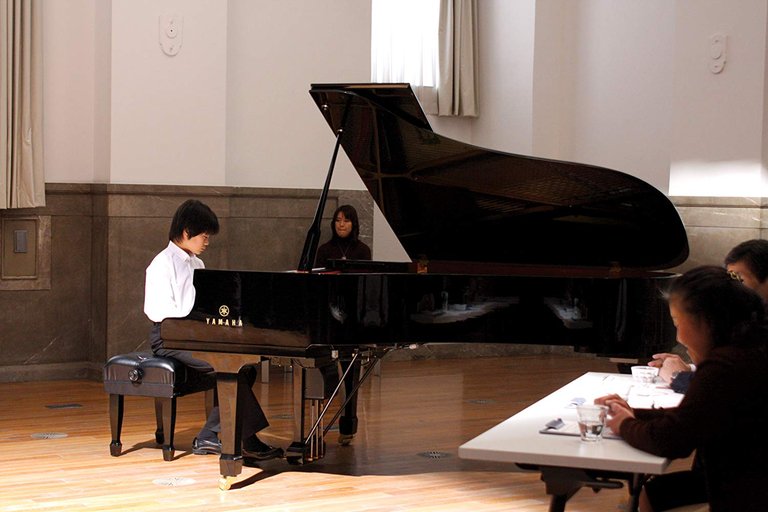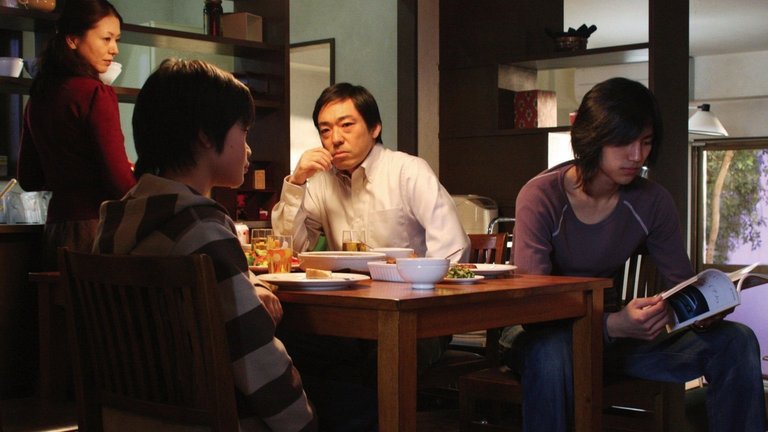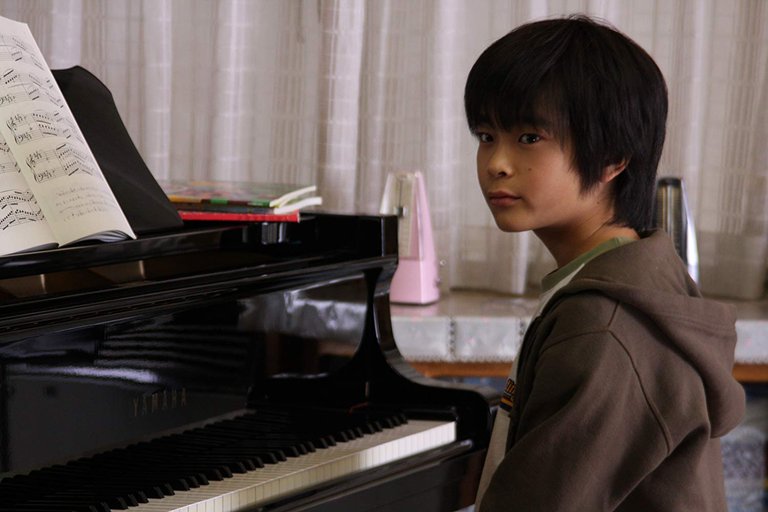A work by Kiyoshi Kurosawa shows a wonderful ordinary depiction of reality. This is because the two-thirds of the realist description in the film almost forgot that this is a Japanese movie. The tone of the Japanese film's quest for inner heart has a brand new variation in this film. The way people explore the heart in the movie is no longer an inward dig, and it is no longer a traditional Japanese style, such as sorrow, and silence. However the incomprehensible and indifferent between people are unable to communicate. The film also points out the hidden worries and sorrows of the modern Japanese society, and perhaps the entire human society, through an objective examination of the family of four.
.jpg)
In the first two-thirds of the realist portrayal, the 48-year-old Kagawa was taken out of the company by the employer. After he was unemployed, he cheated to his family and secretly went out to find a job and eat a salvage meal every day. Similar plots are common in other movies, but in this film, it abandon the ingredients of lyrics and appears to be authentic. If you put this movie into the current financial crisis and economic depression, it will have a great resonance. The director obviously does not want this movie to have too many dramatic elements. In the truthful depiction, we can understand that even in an ultra-rich society like Japan, people are equally unable to resist in the face of social changes.

The three-month unemployed companion can't bear the psychological pressure of being abandoned and deceived by the society. Choosing suicide is an extreme but true portrayal of this problem. The resulting family relationship is also reflected in the lack of communication between the family and the extreme indifference. His wife, the eldest son of adolescence, and the younger second, each has a grief that cannot be said, but all reject each other’s communication and reconciliation. The beauty of this two-thirds is that it does not resort to complete realism. If it is only a realistic depiction of the middle-aged crisis or specific problems such as unemployment, family, and society, it may be just a wonderful social or ethical movie. The film transcends the specific depiction of the plot, through the family's own inner loss and the inner barriers of each other, presenting the individual of the present, as well as the indifference and inability to communicate between people.

Such a deliberate arrangement is undoubtedly an adventure. On the one hand, it completely deviates from the rhythm of the first two-thirds. On the one hand, it is easy to fall into the Japanese tradition of presenting the heart inside. His wife at this time was no longer silent, but opened her hands to wait for the redemption of the void. The film returned to the exaggerated level of Japanese psychological realism. At first glance, I saw a feeling of being caught here. Of course, we love these Japanese styles, but after all, the front part of the movie is a good texture, and we hope it will be done in one style. But when I look back at this paragraph, I seem to feel some kind of good intentions from the director Kurosawa. Perhaps for a family, even for the whole of human society, the problems between people are unsolvable, and only time can solve everything. Then, if you put infinite time on a limited time point, what is wrong with looking at the face of this life without a solution? Moreover, isn't the movie to be dramatic? Therefore, I feel that the film has turned sharply at this moment and introduced a dramatic Japanese psychological drama, which is to give an answer to the film.

The wind and rain of that night condensed too many ideas. Everyone felt that life was long and everyone was eager to start again. However, the film turned to the end again, and after four months of time, the style of the film returned to the real level. But this time it was not the original two-thirds of the origin. The condensed night was diluted by the farther time, and there was a proposition without solution. However, this is no solution after their efforts. In this way, Kurosawa uses a seemingly ordinary reality to present an essential humanity proposition for us. This, like his excellent thrillers, conveys deeper life thinking through some type. The images and soundtracks in the film can easily see the shadow of his thriller. Perhaps in the director's view, the nature of the world through the world is full of mystery. The film’s ending with a universal piano is also common, but it is a very exciting ending. It is not enlightenment, nor impermanence, but like a kind of calming, so that the efforts of the characters in the film and our efforts are all comforted. This is the comfort that this movie brings to us. It is also the comfort we can only get.
IMAGE SOURCE: image1 image2 image3image4
My Score is 5.6/10
Movie URL: https://www.themoviedb.org/movie/8937-t-ky-sonata?language=en-US
Critic: AA